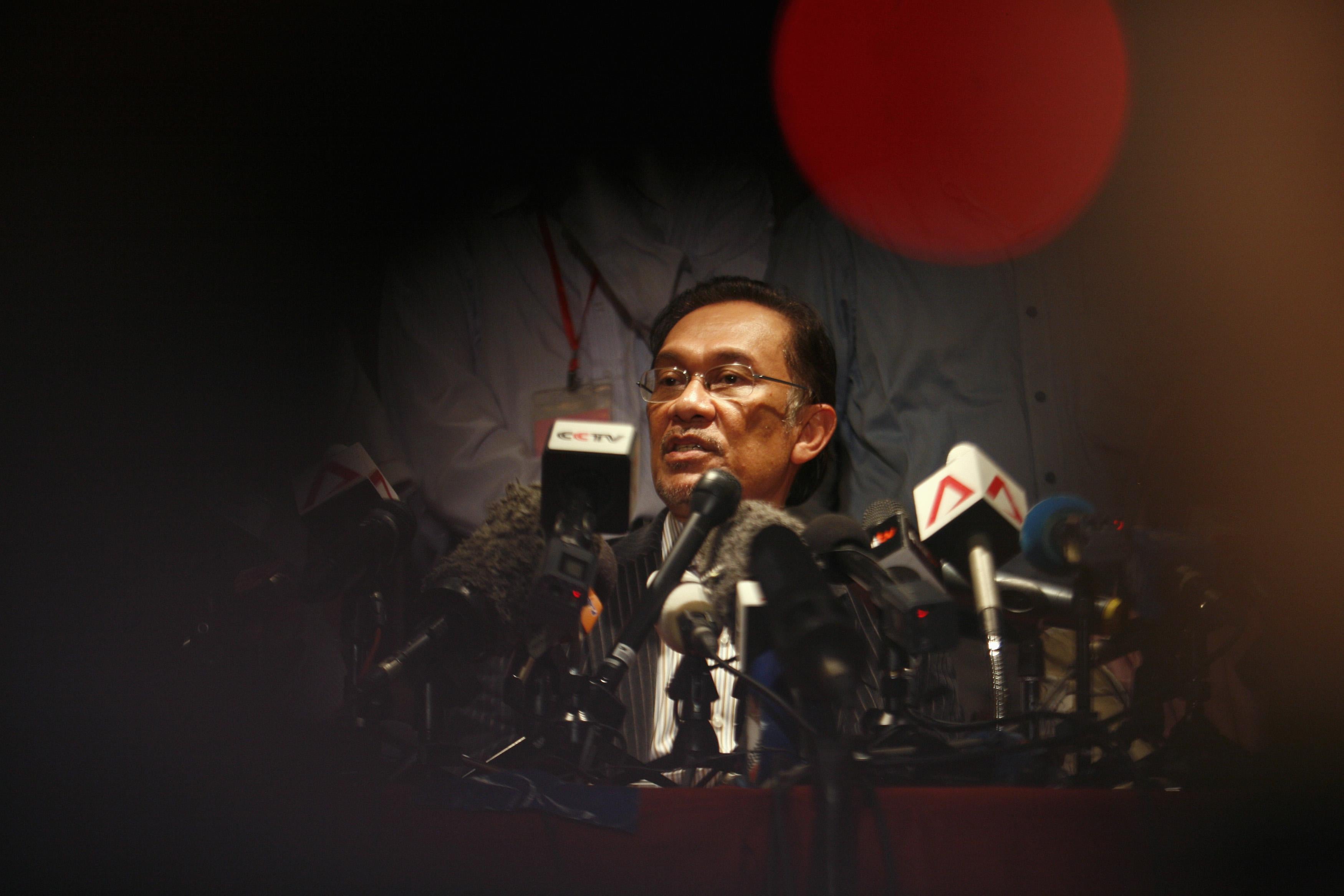The widely criticized sodomy trial of an opposition party leader moves into its final stages in Malaysia today against the backdrop of a larger government crackdown against dissidents. According to Al Jazeera, the country’s highest court has begun hearing a final appeal from Anwar Ibrahim, an opposition leader facing questionable charges believed to be motivated by the Malaysian government’s animosity toward him.
Anwar Ibrahim is the leader of Malaysia’s People’s Justice Party, or Parti Keadilan Rakyat. In 2008, an aide said he was nonconsensually sodomized by Anwar, who was then cleared of all charges in 2012 by a court that found the evidence against him insufficient. In March that ruling was overturned by the Court of Appeal, which took issue with Anwar’s alibi, and he was sentenced to five years. The defense has argued that the Court of Appeal’s review of Anwar’s alibi was inappropriate because it was not one of the issues raised by the prosecution; they also allege that key evidence was mishandled, that medical reports show no evidence of sexual penetration, and that Anwar was mistakenly charged under a statute that forbids consensual sodomy. Although Anwar has said he is “confident of winning the case if we have judicial independence,” the independence of Malaysia’s judiciary has long been questioned by observers.
This is not the first time Anwar has faced such charges. In 1998, as deputy prime minister, he was removed from government and prosecuted for allegedly sodomizing his speechwriter and driver. Many saw the charges as retaliation to Anwar’s push for reform in Malaysian government; he was jailed for six years and beaten by Malaysia’s chief of police, but the charges were eventually overturned in 2004.
Amnesty International has condemned the Malaysian government’s prosecution of Anwar as politically motivated; Amnesty’s Asia Pacific director Richard Bennett called the charges “a blatant attempt by the Malaysian authorities to silence and undermine a critical voice.” According to Amnesty, the prosecution of Anwar is not an isolated incident, but rather part of a broader movement to suppress dissidents and activists in Malaysia. In interviews, Anwar, too, has voiced concern that the Malaysian government is moving in a more authoritarian direction, particularly given its recent use of the colonial-era Sedition Act to arrest opposition politicians, activists, and academics. At least 14 have been charged under the Sedition Act since 2013 despite Prime Minister Najib Razak’s pledge to repeal the Act prior to Malaysia’s last election.
